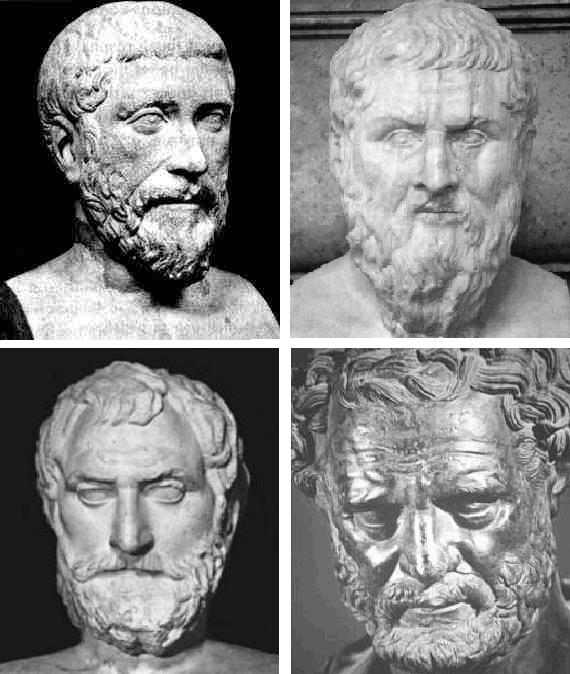Towards the end of the movie, there is a statement to the effect that the war is against “the Mysticism and Tyranny” of Persia. How does one wage war on “Mysticism“? As a student of history for 20 years, I honestly was not aware that Xerxes’ invasion was about bringing (or forcing) “Mysticism” upon Europe, at least in the historical sense. The directors and producers of the 300 movie do not appear to have given much thought to the consequences of this proverbial Hollywood “one-liner”, however it does contain a powerful latent message: “the East” stands for “Mysticism“. In that case, what does “the West” stand for? I would surmise the antithesis of Mysticism – namely, Reason and Learning“.
Few would question the fact that the Greeks pioneered much of what we cherish today with respect to logic and philosophy: Greeks (like all great peoples of history) are integral to world civilization. But any type of assumption that ALL of learning has been historically confined to Greece is very much a recent interpretation (from the late 17th century) – and if I may be so bold, it is also an “Orientalist” viewpoint.
While outside the scope of this discussion, it may surprise some readers to know that a number of the greatest Greek minds of the Classical era, Pythagoras, Plato, Thales, and Democritus, traveled to the Persian Empire to take advantage of the centers in learning in Persis, Babylon and Egypt, notably in the fields of astronomy, mathematics, physical sciences, geometry and theosophy (seeFarrokh, Shadows in the Desert, 2007, Chapter 4).
Greek sages Pythagoras (582 – 500 BC) (top left) Plato (4th century BC) (top right) Thales (624-546 BC) (bottom left) and Democritus (460 – 370 BC) (bottom right).
The Greeks, like many other of the learned and civilized peoples of antiquity, also had their share of superstitions as well. Very few are aware that the study of Astronomy was actually prohibited in ancient Athens in the 5th Century BC; any such studies were labeled as blasphemy. Anaxagoras of Clazomenae (Ionia, modern Western Turkey) was actually expelled from Athens because of the hypotheses he proposed about the sun. The Achaemenid Persians certainly had their superstitions. One vivid example is that of Xerxes “punishing” the Aegean Sea by having the waves lashed – the king was angry that the sea had been so turbulent during his invasion of Greece.
The evolution of learning very much resembles the evolution of human rights in history: it is organic and is ultimately achieved by the synthesis and sharing of ideas between nations, cultures and peoples, whether they are engaged in trade, cultural relations or war.
For further references consult the reference list of discussion item (1).
Chapters:
- The Notion of Democracy and Human Rights
- What really led to War
- The Military Conflict: Separating Fact from Fiction
- The Error of Xerxes: The Burning of Athens
- The “West” battling against the “Mysticism” of “the East”
- The Portrayal of Iranians and Greeks
- A Note on the Iranian Women in Antiquity
- “Good” versus “Evil”
- Bibliography




